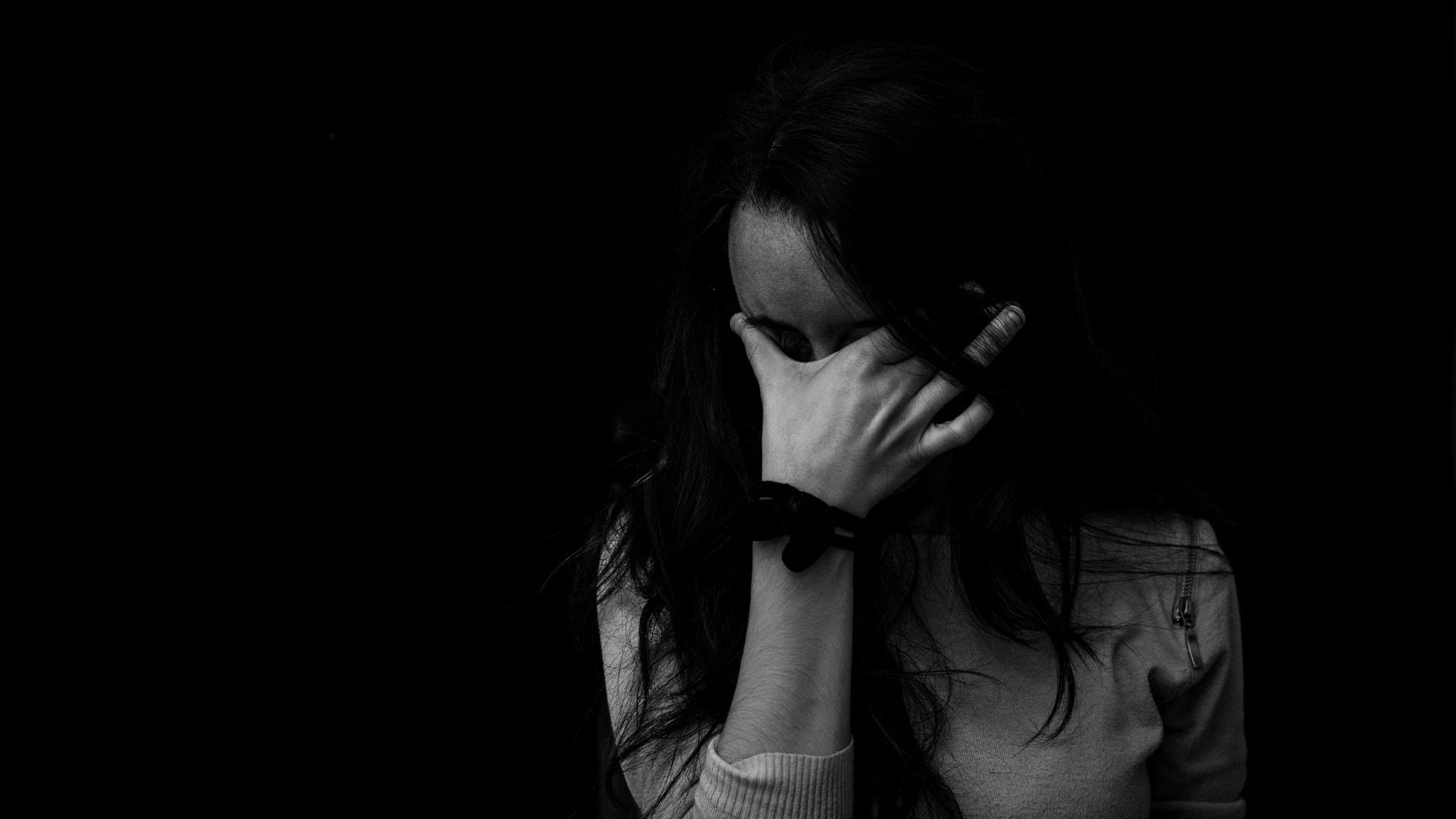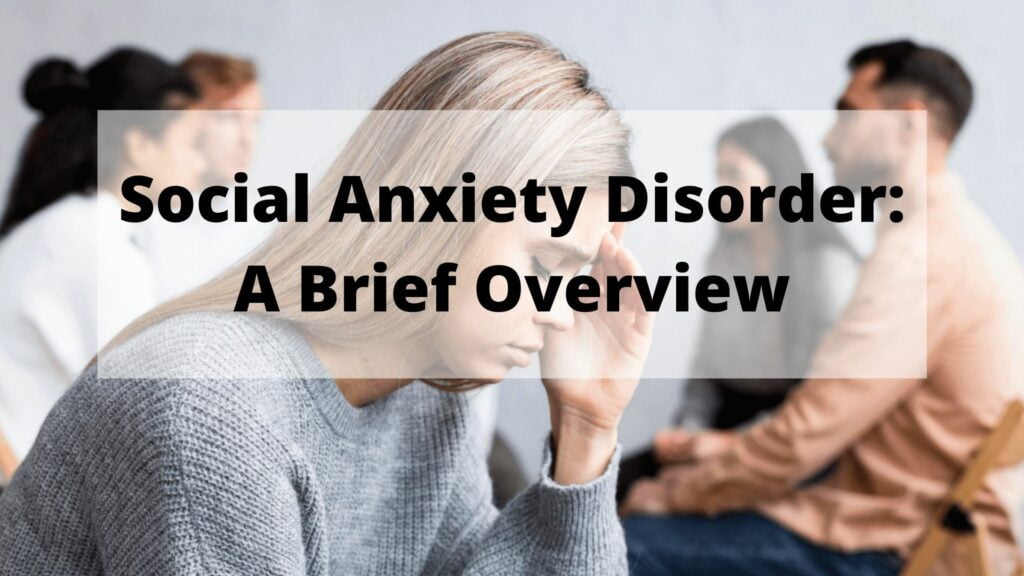Social Anxiety Disorder (SAD) is a debilitating social phobia that affects social situations and the person’s interaction with other people. It has been noted as one of the most difficult disorders to treat. The term social anxiety disorder was coined in 1977 by psychiatrist Charles H. Marks, MD, who described it as “the fear of being scrutinized and judged by others.” Social Anxiety Disorder can be simply defined as: “a persistent and pervasive social or performance situation anxiety that is out of proportion to any actual threat or danger.”
This post will give you an overview, what you need to know about social anxiety disorder, how it’s diagnosed, treatment options for SAD are discussed in detail.
What Is Social Anxiety?
Social anxiety disorder is a mental illness that causes an intense fear of social situations. Those who have social phobia usually experience intense feelings of self-consciousness, embarrassment, and humiliation in front of other people.
The underlying anxiety disorder is the fear of being observed, evaluated, or embarrassed in public. You may be concerned that others will judge you harshly or that you won’t measure up to others.
Even if you are well aware that your insecurities about being judged are unjustified and exaggerated. You cannot help but feel nervous. You may be shy, but you can learn to be comfortable in social situations and reclaim your life, no matter how terrible the butterflies are.
Although the individual may recognize that their anxiety is excessive, the fear typically feels overpowering and out of their control.
The triggers of social anxiety vary among people but might include:
- meeting unfamiliar people
- talking to people at work or school
- being called on to speak in class
- having to talk to a cashier in a store
- using a public restroom
- being seen when eating or drinking
- having to perform in front of others
Many sufferers of this condition do not seek treatment, assuming it is a natural part of their personality. They may instead seek assistance for issues linked to the disorder, such as sadness or drug addiction.
Symptoms of Social Anxiety

The symptoms can vary from person to person but may include: blushing, trembling, nausea and vomiting as well as experiencing an increased heart rate. Social anxiety disorder can even cause panic attacks.
Other symptoms include –
- feelings of panic or panic attacks
- fear of experiencing anxiety or of seeming anxious in front of others
- intense fear of judgment from others
- feelings of fear or dread in situations with other people, especially strangers
- being very self-conscious, embarrassed, or awkward in front of others
- having difficulty speaking
- avoiding situations that might trigger anxiety
- a rigid body posture and a soft voice during social interactions
- difficulty making or maintaining eye contact
- sensitivity to criticism, low self-esteem, and negative self-talk
These are some of the most severe symptoms that may severely impact one’s daily life, such as school, job, and relationships. Without treatment, the individual may be unable to reach their academic or professional potential because they will avoid participating in group activities, addressing groups, or receiving a raise.
Social anxiety can lead to the development of additional issues, such as depression or addiction disorders, when it is severe or chronic.
In youngsters, the indicators are in interactions with both adults and peers. They might experience anxiety as follows:
- crying
- throwing tantrums
- freezing
- clinging to a parent or caregiver
- shrinking
- not speaking in social situations
How Can It Affect Your Life
Social anxiety disorder handicaps you from living your life. You’ll avoid activities that most people consider mundane. It’s conceivable that you won’t understand how others can so easily deal with things.
Low social interactions have a profound impact on your relationships. It can also lead to the following:
- Low self-esteem
- Negative thoughts
- Depression
- Sensitivity to criticism
- Poor social skills that don’t improve
Causes Of Social Anxiety

While social anxiety is a common symptom, many people do not suffer from social phobia or any other mental illness. It is believed that those who experience social phobia have brains that differ in structure and function compared to those without this condition. Social phobia is also sometimes referred to as social anxiety disorder, social neurosis, or social paranoia.
In many cases, it may be caused by an early age trauma which has altered the brain development of those affected. This can differ for each individual and therefore make socializing difficult due to their perception of reality. While there are some other social anxiety causes, social phobia is considered to be the most common.
Social anxiety disorder often begins in late childhood or early adolescence and can last for years if left untreated. social anxiety symptoms may come and go depending on the situation but it does not mean it is gone entirely. This makes socializing difficult because even when there isn’t an actual social anxiety disorder trigger, social phobics will often find themselves thinking about the worst possible outcome.
Serotonin deficiency, for example, is a medical condition that can reduce levels of this neurotransmitter. A serotonin imbalance may be one cause. The amygdala (a brain structure involved in fear response and feelings or thoughts of anxiety) may be excessively active, causing these problems.
Anxiety disorders are familial. Researchers, on the other hand, aren’t sure whether they’re linked to genetic causes. A child might develop an anxiety disorder after learning one of his or her parents’ behaviors, for example. Children can also acquire anxiety disorders as a result of growing up in controlling or overprotective families.
Diagnosis Of Social Anxiety

Social anxiety disorder is under the Diagnostic and Statistical Manual of Mental Disorders, Fifth Edition (DSM-V), which is a handbook for mental health professionals.
A physician may ask questions about the person’s medical history and perform a physical examination to rule out any physical causes for their issues. They can then recommend that they see a mental health specialist.
The individual’s symptoms will be in assessment by a mental health expert, who will inquire about the dates and frequency of their appearance.
The diagnostic criteria for this condition include:
- having a persistent fear about one or more social situations that might involve scrutiny from others (such as conversations, social interactions, performing in front of others)
- having a fear of acting in a way that others will judge negatively or that might lead to rejection or offense (such as a fear of seeming anxious or of doing something embarrassing)
- avoiding situations that might cause feelings of anxiety
- experiencing symptoms that persist for 6 months or longer, cause significant distress, or impair the person’s work, social life, or other key areas.
Complications Of Social Anxiety
It is possible to cure social anxiety disorders. However, it might be debilitating without treatment.
The symptoms of social anxiety disorder can severely affect a person’s work and social life, as well as their ability to develop and maintain friendships, have a good job, and live a happy life.
Other mental health issues, such as low self-esteem, sadness, substance abuse, and suicidal thoughts are also in link with social anxiety disorder.
It is feasible to cure social anxiety disorder with the right therapy, which can significantly improve one’s life.
Treatment
Regardless of the treatment, people with a social anxiety disorder may still experience ongoing symptoms, fear of being judged harshly or negatively by others, and lack of confidence.
Healthcare professionals will usually propose therapy, medicine, or a combination of the two.
Psychotherapy

Talk therapy, also known as psychotherapy, aids individuals in comprehending their life events and developing effective coping methods.
There are many types of psychotherapy, including:
CBT is a popular therapy. It focuses on assisting people in recognizing and changing negative thoughts or beliefs about social interactions. It also aims to alter people’s behaviors or reactions to situations that cause anxiety.
CBT can assist a person to recognize that their thoughts, not those of others, influence how they react and behave.
Exposure therapy, also known as cognitive-dwelling exposure, can be quite useful. With this technique, the person progresses through gradually facing their fears in a therapist’s care and a safe environment.
Medications

People who suffer from social anxiety disorder can benefit from a variety of medicines to control their symptoms. Antianxiety medications, antidepressants, and beta-blockers are the three most common types.
Antidepressants
Selective serotonin reuptake inhibitors (SSRIs) can help with social anxiety disorder symptoms in some people. They may take several weeks or months to work.
Antianxiety Medications
Antianxiety medications work swiftly to reduce anxiety symptoms, but because they might induce dependency, doctors usually prescribe them as a short-term cure.
Benzodiazepines are a kind of antianxiety medication that is quite popular. Alprazolam (Xanax) and clonazepam (Klonopin) are two examples of this class of drugs.
In 2020, the Food and Drug Administration (FDA) upped their benzodiazepine alert. Physical dependence can develop from using these medicines, and withdrawal is potentially fatal. When medications are in combination with alcohol, opioids, or other drugs, people have died. It’s critical to follow your doctor’s instructions when taking these pills.
Beta-blockers
Beta-blockers help to prevent the physical symptoms of anxiety, such as sweating, tremors, and a racing heart. They accomplish this by blocking the stimulant effects of adrenaline. These drugs are generally for particular purposes, such as giving a speech, but not daily.
Tips for Overcoming Anxiety
Social anxiety is a highly individual problem. Tips that work for one person may not be as beneficial to another. As a result, it’s good to test out various strategies to determine which one works best.
Here are some recommendations to help individuals overcome social anxiety.
Increase Social Situations Gradually

People who suffer from social anxiety disorder avoid social encounters where they may experience anxiety. Although this helps to relieve anxiety at the moment, it can lead to more severe levels of anxiety in the long run.
Individuals with persistent fear can use this technique to gradually increase their exposure to the situations they are afraid of. This allows them to have a good experience with the situation.
Positive social interactions might boost a person’s self-esteem and decrease their anxiety or reassure them that they can overcome it.
Take Time to Relax
Participating in mood-boosting hobbies releases feel-good neurotransmitters in the brain. This reduces stress and improves a person’s attitude toward their anxiety.
Try listening to music, reading, playing a video game, or meditating before going into an uncomfortable social event.
Reframe Your Thoughts
If someone believes they are shy, it will encourage current anxiety about speaking to others or being in public. Thoughts drive behavioral patterns. Guiding individuals through the reframing process using CBT is one approach.
Avoid Relying On Alcohol
Anxiety is a form of worry that people experience in their daily life. Alcohol and other drugs can help individuals cope with it in the short term. However, anxiety may worsen over time as a result of drinking or using other substances, resulting in addiction or substance use disorders.
Conclusion
Social anxiety is a common mental health disorder that affects people in many different ways. It can be hard to know if you have social anxiety and how severe it may be. So here are some signs that might indicate the need for treatment: -Avoiding certain situations where one would feel embarrassed or judged by others. -Feeling nervous before, during, or after these events. -Suffering from panic attacks when feeling publically scrutinized. If any of this sounds familiar then contact your doctor today to explore options for coping with social anxiety symptoms through therapy and medication-based treatments.
For more information, please contact MantraCare. Anxiety is a common mental health condition characterized by persistent feelings of worry, fear, and apprehension. If you have any queries regarding Online Anxiety Counseling experienced therapists at MantraCare can help: Book a trial Anxiety therapy session


